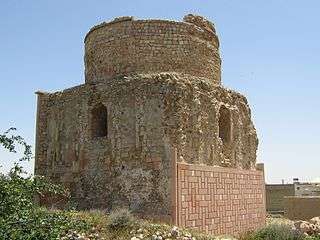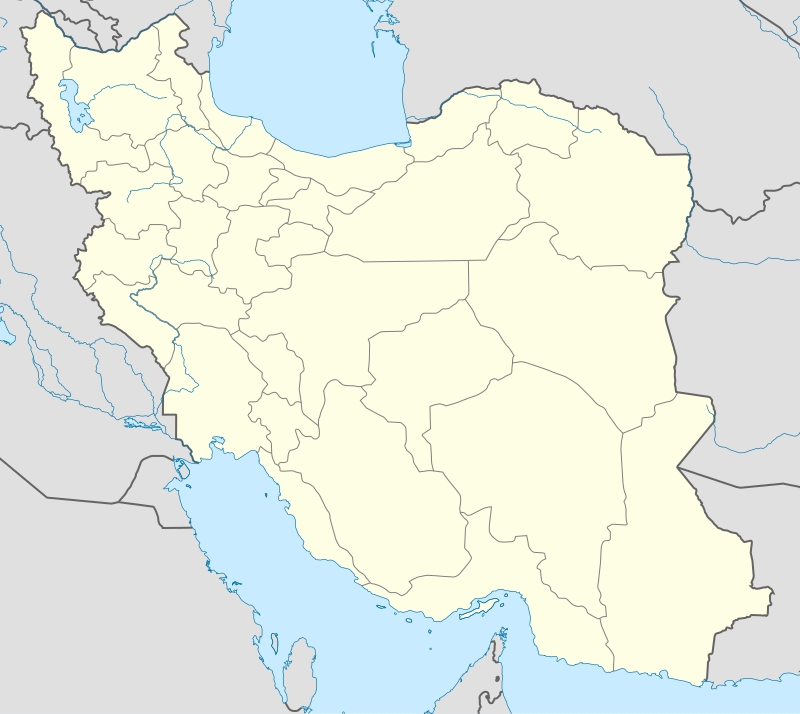Khonj
khonj (Persian: خنج, also known as Khunj and khunji)[2] is a city and capital of Khonj County, Fars Province, Iran. At the 2006 census, its population was 20,012, in 3,362 families.[3] It is located at an altitude of 670 metres (2,200 ft). Khonj was traditionally part of the region of Irahistan. The people of Khonj are native Persian of Zoroastrian origin who converted to Sunni Islam.
Khonj خنج | |
|---|---|
City | |
 Mausoleum of Sheikh Shoayb Khonji | |
 Khonj | |
| Coordinates: 27°53′29″N 53°26′04″E | |
| Country | |
| Province | Fars |
| County | Khonj |
| Bakhsh | Central |
| Elevation | 670 m (2,200 ft) |
| Population (2016 Census) | |
| • Total | 19,217 [1] |
| Time zone | UTC+3:30 (IRST) |
| • Summer (DST) | UTC+4:30 (IRDT) |
Khonj is located 270 kilometres (170 mi) south of Shiraz. Its history goes back to 2000 years and was known to be the followers of Zoroastrianism. Khonjis refer to themselves as Khodmooni, a term literally meaning "part of ourselves" but figuratively used to refer to people from Gerash, Lar, Evaz, Khonj and other neighboring cities that share a common language known as "Achomi". The ancient names for Khonj has always been Hong and konj (corner in Persian) and over time it was changed to Khonj. Its residents are Sunni unlike most of the rest of the country, and are famous as traders. The city has historical significance as it was the home for many Muslim scholars and great architectures before and after Islam. Ibn Battuta the great Moroccan explorer wrote about his travels to Khonj in great detail.
Khonj agriculture is made of wheat, oat and Dates and Khonj has the least amount of rain than any part of the province of Fars.
References
- https://www.amar.org.ir/english
- Khonj can be found at GEOnet Names Server, at this link, by opening the Advanced Search box, entering "-3071160" in the "Unique Feature Id" form, and clicking on "Search Database".
- "Census of the Islamic Republic of Iran, 1385 (2006)". Islamic Republic of Iran. Archived from the original (Excel) on 2011-11-11.
